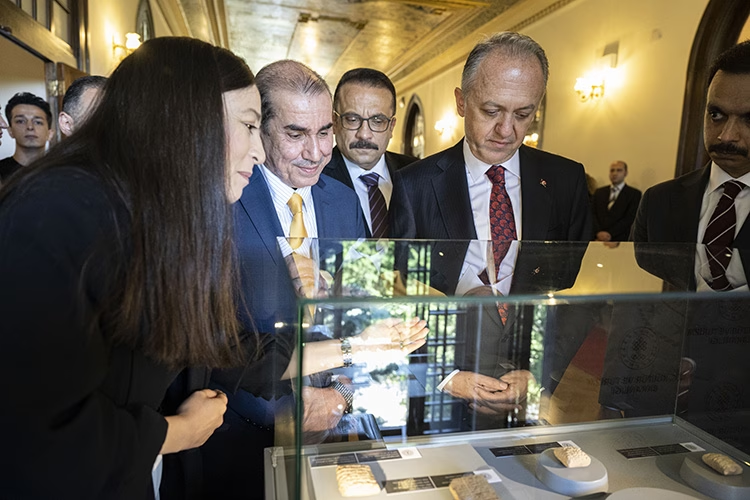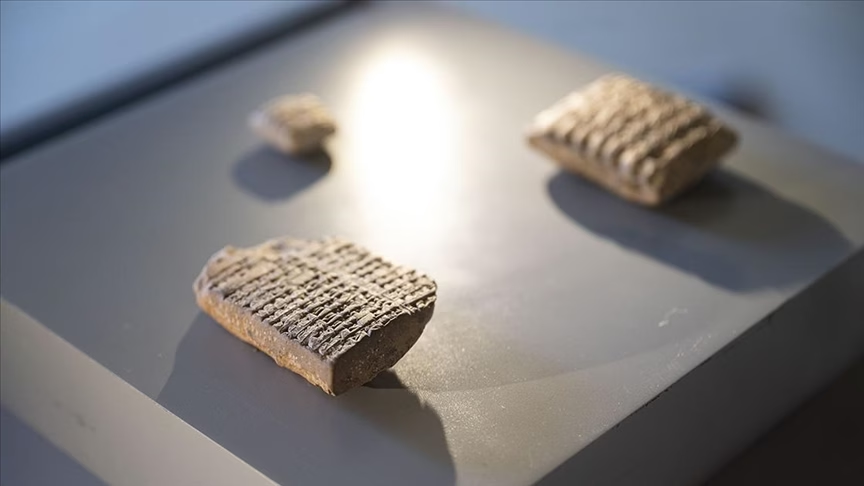Turkey has taken a significant step in cultural diplomacy by returning six cuneiform clay tablets, dating back over 6,000 years, to Iraq. These ancient artifacts, originating from the Ur III, Old Akkadian, and Old Babylonian periods, contain valuable economic, administrative, and religious records.
The handover ceremony took place at the Republic Museum in Ankara, attended by Turkey’s Deputy Minister of Culture and Tourism, Gökhan Yazgı, and Iraq’s Ambassador to Turkey, Majid Abdulreda Hassan Al-Lachmawi.
Preserving the Heritage of Ancient Civilizations
Scientific analysis by experts at the Istanbul Archaeology Museum confirmed the Iraqi origin of the tablets. The artifacts reveal insights into daily life, religious hierarchies, and economic transactions in southern Mesopotamia.

Deputy Minister Yazgı emphasized Turkey’s commitment to safeguarding not only its own cultural heritage but also that of other nations:
“These tablets are not just historical documents; they are invaluable scientific and cultural resources. Turkey approaches cultural heritage with deep respect for all civilizations.”
A Growing Legacy of Cultural Repatriation
Since 2010, Turkey has returned a total of 97 cultural artifacts to Iraq, acting in full compliance with international agreements including UNESCO’s 1970 Convention and relevant United Nations Security Council resolutions.
“Today’s repatriation is more than a goodwill gesture—it reflects Turkey’s adherence to international law and cultural responsibility,” said Yazgı.

He also highlighted that these tablets were voluntarily handed over by a private citizen, demonstrating growing public awareness and dedication to cultural preservation.
Strengthening Iraq-Turkey Relations through Cultural Cooperation
Ambassador Al-Lachmawi expressed gratitude for Turkey’s support and cooperation in returning Iraqi cultural heritage:
“The return of these precious artifacts is not only a contribution to Iraq’s historical legacy but also a symbol of friendship and mutual respect between our countries.”
Details of the Tablets: From Economic Records to Priest Lists
The tablets include a range of inscriptions such as lists of priests from the Ur III period, livestock payment records from the Old Akkadian era, and administrative documents from King Ibbi-Sin’s reign.

Prof. Dr. Selim Ferruh Adalı led the historical and linguistic analysis, confirming the tablets’ authenticity and cultural significance.
Turkey’s Leading Role in Protecting Cultural Heritage
Turkey continues to play a pioneering role in the fight against illegal trafficking of cultural assets. Returning these artifacts to Iraq is a concrete example of international cultural cooperation and historical justice.
Cover Image Credit: The photos included in the article belong to Anadolu Agency.





